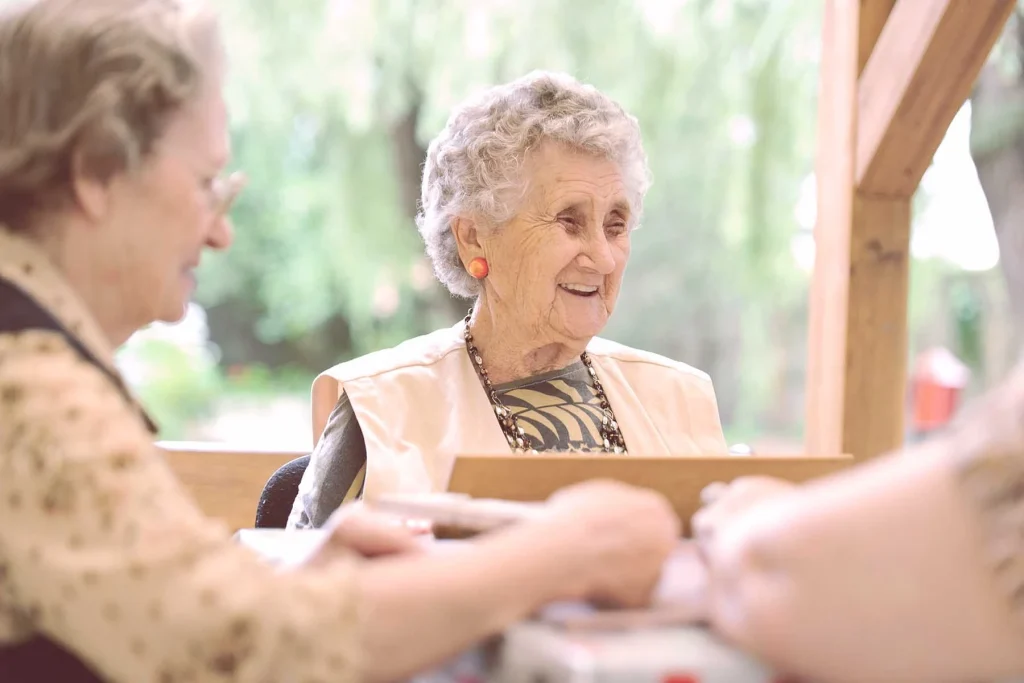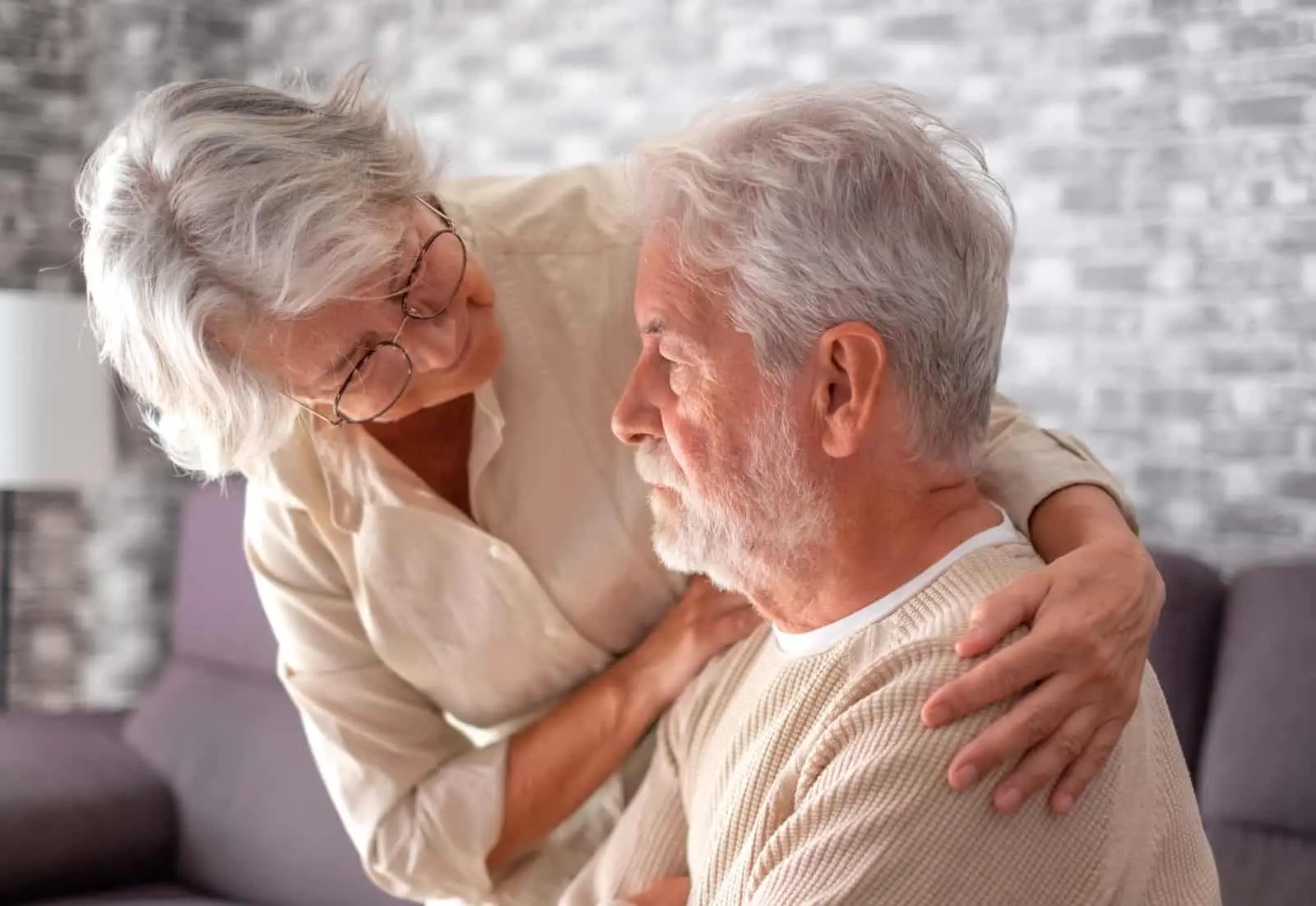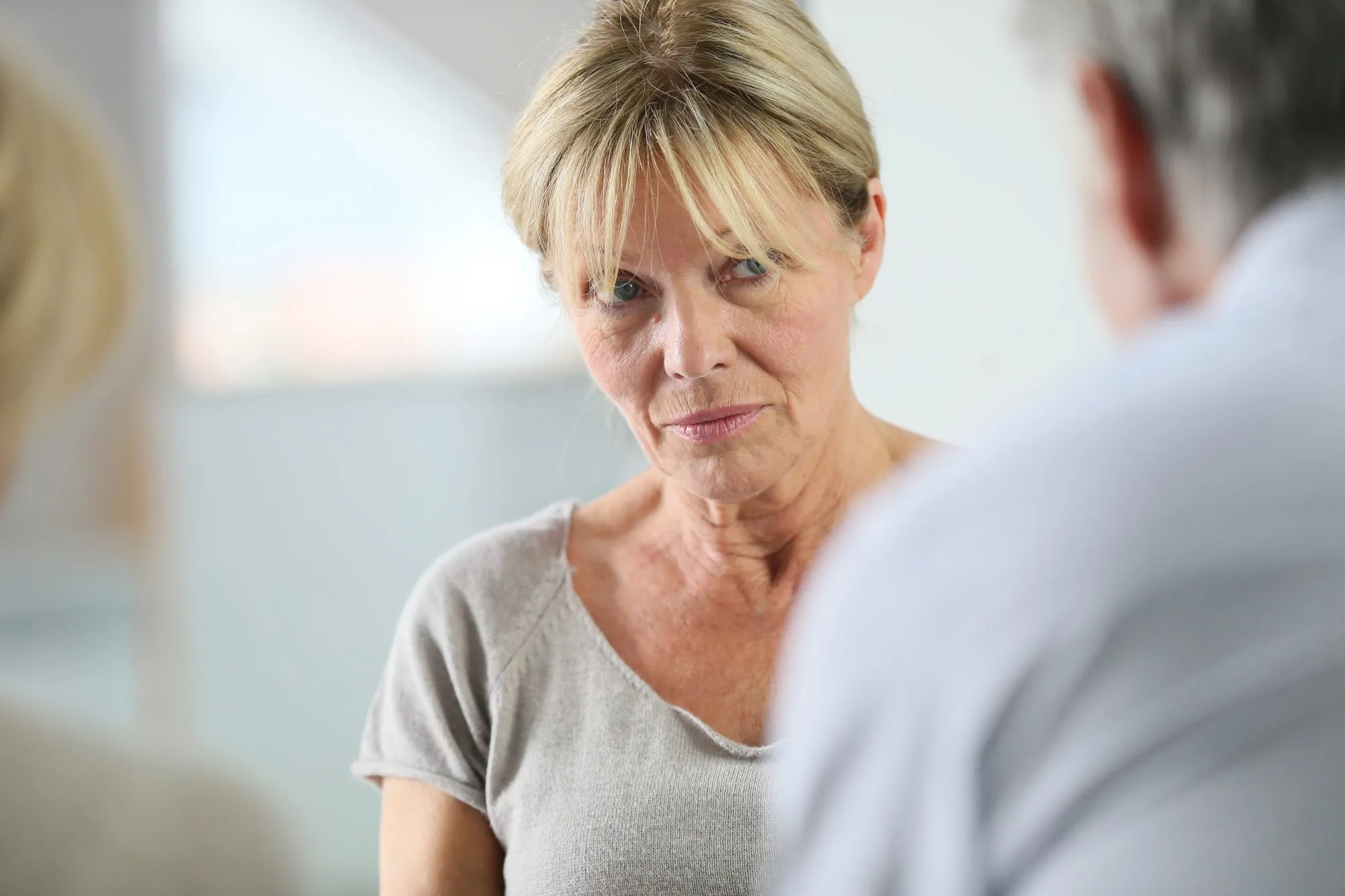
Important Points About Mental Health Issues in Elderly
Mental health issues in elderly are a major societal issue. The world is aging, and developed countries have been combating this phenomenon for years by controlling births and improving the health of their communities. As we age, changes in our lives, such as the loss of loved ones, illness, or retirement, can affect the mental health of the elderly. But aging does not mean that mental health must also be impaired.
There are steps you can take to help your elderly feel good and find help when needed. For example, showing them respect for the elderly can show them that they are still loved by those around them and that their mental health is being maintained. Mental health describes your emotional well-being! How you think, feel and cope with everyday stress. Managing anxiety in seniors is often crucial and important, as they may experience anxiety for various reasons. Mental health is just as important as your physical health and, like your physical health, it can get better or worse as your circumstances change.
You probably won’t have poor mental health as you get older. But if you’re struggling with your mental health as you get older, you’re not alone. Mental health problems in older people are very common, although different types affect different numbers of people. Depression is the most common, affecting one in five older people. Anxiety affects around one in 10 older people. In this article from humanhealthmag, we’ll get to know the most important tips for maintaining mental health as you get older.
Aging and Importance of Mental Health Issues in the Elderly
In general, it is very important to pay attention to mental health issues in the elderly. You should note that aging is not a disease, but a stage of the life cycle that has its own developmental issues. At the same time, old age is accompanied by the accumulation of wisdom and is an opportunity for a person to pass on his experiences to future generations.
Erik Erikson considered old age a time for procreation, not a period of despair and hopelessness. The aging process is characterized by a gradual decline in the function of some body systems (cardiovascular, respiratory, genitourinary, endocrine, immune and other systems), but the belief that aging is always accompanied by severe physical and mental weakness is nothing more than a myth.

Many elderly people maintain their cognitive and physical abilities to a significant extent. In general, aging means the aging of cells. Each cell has a specific lifespan that is determined by genetic factors, environmental factors, etc. They are effective in it. As we age, structural changes occur in cells. In late adulthood, the aging body becomes the focus of a person’s concerns, replacing the midlife preoccupation with work and relationships. This is due to the natural decline in function, changing physical appearance, and an increase in the incidence of physical illness.
Despite these events, the human body in old age remains a source of considerable pleasure that can convey a sense of adequacy. Especially if the person pays sufficient attention to regular exercise, a healthy diet, adequate rest, and preventive medical care. For example, with brain exercises for the elderly, one can maintain the mental health and well-being of one’s elderly parents.
Risk Factors for Mental Health in Elderly
There is usually not just one reason that causes mental problems, and you should learn about mental health issues in the elderly from experts. Various social, physical, and psychological factors can be linked together and lead to mental conditions that interfere with the lives of the elderly. Risk factors for mental health in the elderly include:
- Loneliness or social isolation
- Loss of close friends or family members
- Loss of motor independence such as chronic pain, reduced mobility, and other functional challenges
- Medical problems such as common diseases such as diabetes, heart disease, cancer, rheumatoid arthritis, and Parkinson’s disease
- Stress
- Fear of death
- Psychosis
- Alzheimer’s disease
- Changes in sleep patterns
Note that all of the problems mentioned above are always the focus of psychologists and psychiatrists and can be treated clinically and with the help of a supportive method in the elderly. For example, tips on supporting elderly with depression can help solve the mental problems of elderly people with depression.

Mental Health Indicators of Seniors
Here are some mental health issues in the elderly:
- Spirituality: One of the indicators of mental health in the elderly is “spirituality”. As people get older, they can organize past experiences and thoughts to better understand the world. Although it may be more difficult to attend worship services outside the home, the elderly have more time to think and reflect in solitude. If the basic needs are met, the elderly are ready to reach the highest level of Maslow’s classification, namely self-transcendence. The elderly’s turn to spirituality can be considered an indicator of mental health.
- The emotion of death: Among the emotions that strongly affect human psychological life, from the point of view of psychoanalysis, human mental health depends on the extent to which they master the emotion of death. It seems that in order to effectively deal with death, there is no other way than to increase knowledge about the afterlife, its benefits to the quality of life, and metaphysical matters.
- Health behaviors: Health behaviors are also one of the indicators of mental health that have a preventive role in that doing them helps to maintain or improve health and avoid diseases in old age. However, when people feel well, they may not be willing to do health behaviors that require effort and sacrifice.
- Maintaining contact with people and social activity: Among other indicators of mental health is “maintaining contact with people and social activity”. Even contact with young people can create a sense of usefulness and increase self-esteem in the elderly because the elderly have passed on social and cultural values to the next generation throughout their lives and can now find the results of their lifetime efforts in connection with them.
- Senior Citizens’ Clubs: Another factor in the mental health of senior citizens is the need to form senior citizen clubs where they can gather, so that in addition to gathering in public environments such as parks, they can have a dedicated place for themselves where they can meet each other and share a common sense of their natural abilities and disabilities that come with aging, and engage in activities appropriate to those abilities.
10 Mental Health Issues in Elderly
The following tips will help maintain mental health in old age. The most important points of mental health issues in elderly include the following:
1- Reduce anxiety and worry
- To solve this anxiety, you must first find the sources that cause it. For example, talking about the worry or a therapist or even expressing the worrying issues with a friend or companion can lead to reducing anxiety and worry in the elderly. Even with things like walking, playing sports and appropriate hobbies, physical activities can help the elderly to gain peace.
2- Have a positive outlook in old age
- When you look at things with a positive point of view and by strengthening positive emotions, it becomes easier for the elderly to solve problems and endure problems. To maintain health, think about the good in the world and spend time with activities and people that make you happy.
3- The need for physical activity
- Physical activity enhances mental activity in the elderly and is therefore very important throughout life. If you start physical activity in your youth and stick to it, you will gain more benefits from it in your old age. Therefore, the benefits of exercising include fitness, greater flexibility, improved balance, being in good spirits, etc. Try to make the most of and enjoy your old age by maintaining your health at a balanced and reasonable level.
4- Being mentally active
- Solving all kinds of tables and puzzles and increasing general knowledge by reading numerous books helps the elderly keep their minds active. Learn to work with a computer and contact your friends and acquaintances by email. Reading stories to your children and grandchildren and helping them solve homework is useful for keeping your mind healthy.

5 – Getting enough rest for mental health in the elderly
- Getting enough sleep and rest will help you have a calm mind. Sleep 7-8 hours a day. In addition to nighttime sleep, a 30-40 minute nap will help you relax and increase your energy. (As long as you don’t suffer from nighttime insomnia)
6 – Getting physical activity for mental health in the elderly
- The sooner you start regular exercise, the more benefits you will get. Exercising reduces chronic diseases such as atherosclerosis, lowers blood pressure, and lowers blood lipids. Regular, gentle daily physical activity, such as walking for 30 minutes a day, reduces cardiovascular disease and reduces the incidence of osteoporosis, improves respiratory function, improves blood flow, maintains ideal weight and fitness, and ultimately gives you an overall feeling of physical and mental peace.
7- Reviewing past memories for children and grandchildren
- Reminiscing about memories and even looking at old photo albums and talking to family members is a way to bond with those around you and strengthen your memory.
8- Having a proper diet
- Reducing salt intake and limiting solid fat intake, maintaining a healthy weight, and consuming all food groups, especially fresh fruits and vegetables and dairy products, play an effective role in maintaining your health.
9- Participate in charity and volunteer work
- Participating in volunteering programs to help the needy is very effective in creating mental and psychological peace. Remember that when you help others, you will definitely benefit from their help directly or indirectly. In addition, spending time with others is a good way to get rid of isolation and depression.
10- Have family visits
- Having strong relationships with family and friends is always important, and these relationships become doubly important as you age. Studies show that if your social relationships are weak, your risk of death will be four times higher than someone who is surrounded by people who love you and who love them back. In fact, having reliable friends and family is one of the most important indicators of longevity and mental health in the elderly. Volunteer at a school, library, or charity.
Concluding Remarks
In this article, we talked about mental health issues in elderly. In general, maintaining the morale of the elderly during this time is very important, so if you are not able to accompany your elderly person, you should use an elderly nurse at home. For this, you can visit a nursing service center. These centers provide you with the highest quality care services.
Finally, if your elderly person has recently experienced mood swings, decreased energy, decreased enjoyment of daily activities, feelings of guilt, feelings of worthlessness, a desire for solitude, sadness and anxiety, decreased insomnia and appetite, weight loss, and numerous physical complaints, be sure to visit a psychiatrist.
Could you help us make this content even better? What do you love, and what can we improve? Share your thoughts below, feedback is the key to creating better content for YOU. If you also have an experience in this regard, please share it with us and others.

Frequently Asked Questions
What Are the Risk Factors for Mental Health in Older Adults?
Mental health issues can have many causes. In fact, there is usually no single cause that causes mental health problems. Various social, physical, and psychological factors can combine to lead to mental health conditions that interfere with older adults’ lives. In order to understand how to improve mental health in older adults, we must first understand the root cause. Even if you are a healthy senior now, you or your loved ones may develop mental health problems in the future.
What Is the Role of Diet in Mental Health in Seniors?
Diet not only affects the body physically, but it can also affect mental health for better or worse. Eating a well-balanced diet rich in whole grains, fruits and vegetables, lean proteins, and healthy fats like olive oil can boost brain health and even reduce the likelihood of depression and reduce the risk of dementia.
What Is the Connection Between Exercise and Mental Health in Seniors?
Exercise may be best known for its physical benefits, but it is also an essential activity for promoting mental health in seniors. Exercise improves mood in seniors by increasing endorphins and other feel-good chemicals in the brain, and it also reduces stress hormones, making it a self-medication for managing depression and anxiety.
